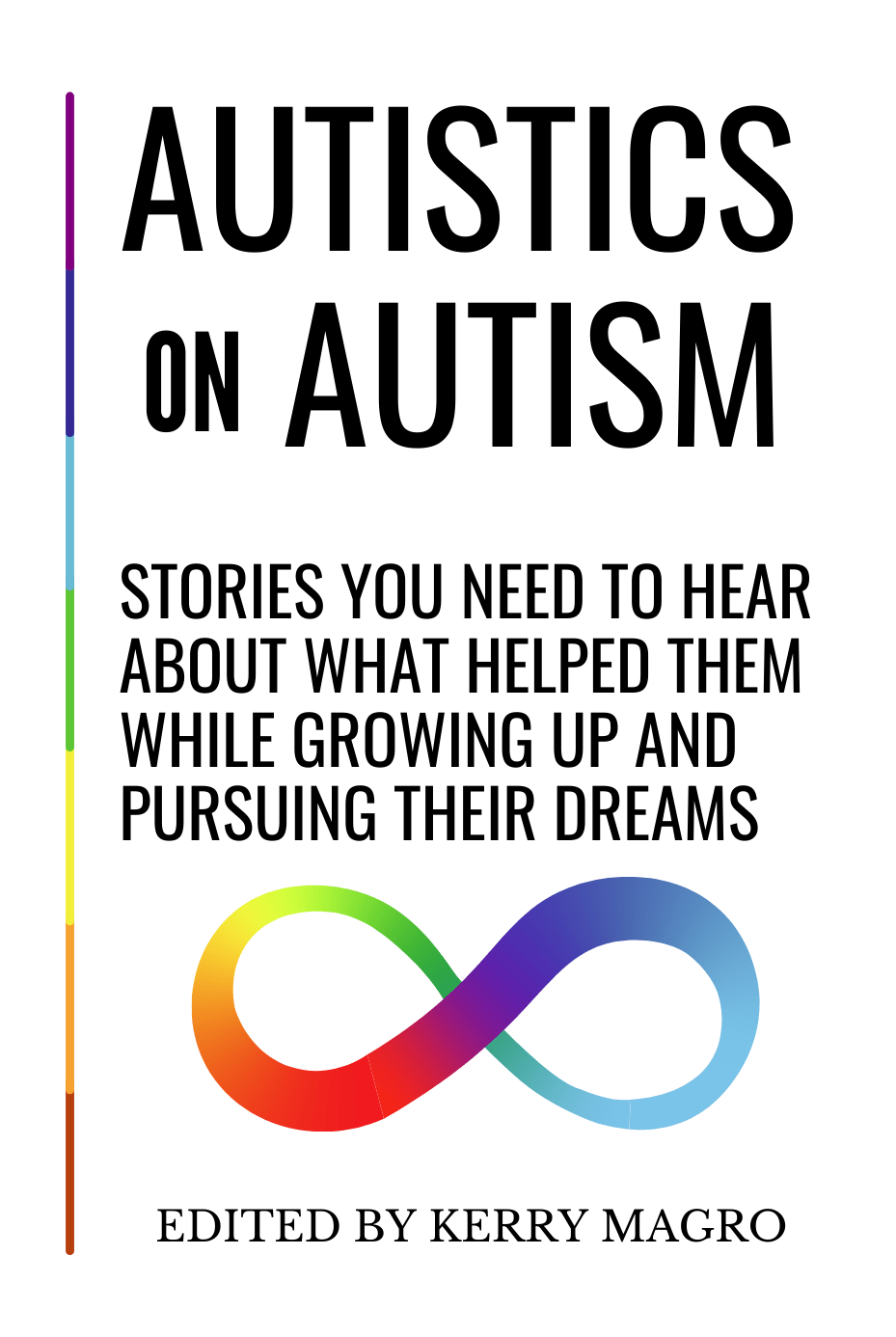This guest post is by Nadia Montiel, a young woman on the autism spectrum who was diagnosed with ASD at the age of 2.5 and has been accepted into California Lutheran University. Nadia is applying for the Spring 2022 Making a Difference Autism Scholarship via the nonprofit KFM Making a Difference started by me, Kerry Magro. I was nonverbal till 2.5 and diagnosed with autism at 4, and you can read more about my organization here. Autistics on Autism: Stories You Need to Hear About What Helped Them While Growing Up and Pursuing Their Dreams, our nonprofit’s new book, was released on March 29, 2022, on Amazon here for our community to enjoy featuring the stories of 100 autistic adults.
When a neurotypical person imagines someone who is on the spectrum they automatically think of the white male who is extra gifted in math or obsessed with trains. We are more complex than that. It is called a spectrum disorder for a reason. Individuals on the Autism Spectrum are of all races and gender, but the media does us no justice.
Looking back on my childhood I can only think of one example of media that provides me with proper representation, a book I discovered in the ninth grade, and ever since then, it has held a special place in my heart. A protagonist in the book is a female person of color who is on the spectrum, but she is self-sufficient. Her autism isn’t her main personality trait, and it isn’t used as some plot point or punchline. While reading I could envision myself reacting the same way as her, and relating to her struggles. That was one of the only times I truly saw myself in a character.
Getting to see realistic representation allowed me to not feel so alienated. Even if there are other pieces of media that show the Autism spectrum, I cannot relate to any of them. In shows like The Good Doctor or Atypical, the main characters are both white males who have little to no social awareness and behave very stereotypically. I know that there are people on the spectrum who are exactly like this, but for someone who is on a different side of the spectrum, I want to see more innovation. I want to see the public persecution of autism expand, so those like me who mostly blend in with their peers can feel represented and understood. I want the neurotypical community to be able to see a glance at what it is like to have to work to be “socially acceptable”. To see the countless amounts of therapy and support from our loved ones that it takes for us to appear like everyone else.
If autism was portrayed more often, I feel like I wouldn’t be so afraid of people finding out about my diagnosis. Growing up I was always terrified to let anyone know about my autism because every time autism was brought up, it was in a negative light. There are countless memes on the internet mocking us, and it is often used as slang for stupidity. I experience overwhelming dread when I hear my diagnosis, my lifetime struggles, being diminished to mere stupidity. To fix this prejudice I think it is important to start exposing children to what autism is at an early age. We need to include all forms of the spectrum in children’s media, like in television shows or a book. That way kids are introduced to the spectrum in positive ways.
More exposure to autism would lessen the amount of prejudice towards people on the spectrum, and it would also benefit children on the spectrum as well. When you grow up and see nobody on television who is like you, you begin to feel left out. You feel like you are the only one out there going through these struggles and begin to resent that. For years I wished I could get rid of my autism because of the social isolation it provided me. If I was able to see a story of a person going through the same hardships as me, maybe I would have been able to cope better. Now I have a better understanding of my hardships and have productive ways to work through them, but maybe if I could have seen the stories of others it would have been different.
One in forty-four children are diagnosed with Autism Spectrum Disorder, it is very likely that every person knows at least one individual on the spectrum. That is why it is important we start representing it in the media. That is a large number of people being looked over and left behind, wondering why we are being forgotten. I hope to one day be a significant advocate for the autism community, and break the stereotypes that have been held about the disorder for years. I think it is important for people on the spectrum to speak up and share their stories to fill in for the lack of representation there currently is. It would help parents not be afraid of their child is diagnosed and give support to the people who are coming to grips with their disorder.
Follow my journey on Facebook, my Facebook Fan Page, Tiktok, Youtube & Instagram,
My name is Kerry Magro, a professional speaker and best-selling author who is also on the autism spectrum. I started the nonprofit KFM Making a Difference in 2011 to help students with autism receive scholarship aid to pursue post-secondary education. Help support me so I can continue to help students with autism go to college by making a tax-deductible donation to our nonprofit here.
Autistics on Autism: Stories You Need to Hear About What Helped Them While Growing Up and Pursuing Their Dreams was released on March 29, 2022 on Amazon here for our community to enjoy featuring the stories of 100 autistic adults. 100% of the proceeds from this book will go back to our nonprofit to support initiatives like our autism scholarship program. In addition, this autistic adult’s essay you just read will be featured in a future volume of this book as we plan on making this into a series of books on autistic adults.















